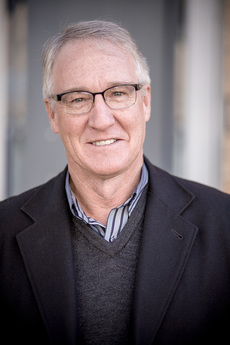 Professor Deon Rossouw says ethical behaviour cannot be legislated: we all have to make it habitual or we will find ourselves in a race to the bottom Professor Deon Rossouw says ethical behaviour cannot be legislated: we all have to make it habitual or we will find ourselves in a race to the bottom * NOTE: Supporting video, audio and image available at http://bit.ly/1AXOiFk The year is barely a month old and already we have ample evidence of how easily societies can fracture. The escalating violence in West Africa perpetrated by Boko Haram, the massacre at the Charlie Hebdo offices in France and, thankfully less dramatically, the Twitter storm that broke after President Zuma’s remarks in Cape Town, and Zelda la Grange’s tweets from London—all these incidents graphically illustrate how different beliefs and opinions can pull nations apart. “We all want to live in countries that are safe and prosperous, and destructive conflicts makes that an impossibility,” says Deon Rossouw, CEO of the Ethics Institute of South Africa (EthicsSA). “Nations, and particularly nations like South Africa, with its history of division, need a strong moral glue to hold them together. Unfortunately, ethical behaviour cannot be legislated: we all have to make it habitual or we will find ourselves in a race to the bottom.” Rossouw argues that if we cultivate the following three ethical habits (or virtues), we will each be playing a role in creating a safer and more decent society. Moral sensitivity Moral sensitivity means considering how what we say or do affects others in the community. “It’s about transcending narrow, short-term interests to consider how our words or actions affect others,” he says. “The misuse of social media for instance is a concern because people use it in the heat of the moment, forgetting to put themselves in the other person’s shoes—we remain trapped in the business of scoring debating points and end up painting each other into corners.” Moral imagination Moral sensitivity should be complemented by cultivating the ability to look beyond the moment at what might be—the “big picture” so beloved of business strategists. “Moral imagination is the ability to look beyond existing divides and see the potential that can unfold if we approach matters differently”, he said. Take the Twitter storm that erupted after the President’s remarks linking Eskom’s current woes to apartheid, and that the arrival of Jan van Riebeeck spelled trouble for the Cape. The reactions were largely all too predictable, but what if they had focused more on the kind of society we want to create? After all, the President basically condemned himself by what he said, but the heated responses kept the debate at the same level, by and large. “People tend to fight instinctively for their position without realising the long-term damage they are doing to society,” Rossouw comments. “We have to learn how to lament what we see as current shortfalls in such a way as to bring forth the future we want.” Moral courage Quite simply, most people have the intention to act morally or ethically, but they also need to act on their moral intentions, even when doing so would be inconvenient or not self-serving. If we see corruption occurring, we have to put aside feelings of loyalty or expediency and report it; and if we are caught out, we should not take the easy way out by offering a bribe. Deon Rossouw emphasises that it would be a mistake to think that integrating these ethical habits into the way we live our lives is unattainable. “Nelson Mandela was a shining example of somebody who had moral sensitivity, moral imagination and considerable moral courage,” he explains. “He was able to think himself into the minds of his opponents, he never allowed a current issue to make him lose sight of the South Africa he wanted ultimately to create, and he acted on these insights even though it may have cost him some support. We need to follow his lead.” ENDS MEDIA CONTACT: Juanita Vorster, 079 523 8374, [email protected], www.atthatpoint.co.za For more information on EthicsSA please visit: Website: www.ethicssa.org LinkedIn: Ethics Institute of South Africa Facebook: Ethics Institute of South Africa Comments are closed.
|
Welcome to the newsroom of The Ethics Institute. For media releases prior to August 2014 please click here.
Archives
August 2017
Categories
All
|

 RSS Feed
RSS Feed